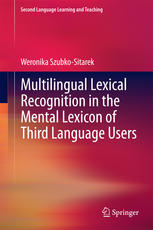

Most ebook files are in PDF format, so you can easily read them using various software such as Foxit Reader or directly on the Google Chrome browser.
Some ebook files are released by publishers in other formats such as .awz, .mobi, .epub, .fb2, etc. You may need to install specific software to read these formats on mobile/PC, such as Calibre.
Please read the tutorial at this link: https://ebookbell.com/faq
We offer FREE conversion to the popular formats you request; however, this may take some time. Therefore, right after payment, please email us, and we will try to provide the service as quickly as possible.
For some exceptional file formats or broken links (if any), please refrain from opening any disputes. Instead, email us first, and we will try to assist within a maximum of 6 hours.
EbookBell Team

4.3
98 reviewsThe monograph constitutes an attempt to demonstrate that trilinguals should be considered as learners and speakers in their own right as opposed to L2 learners with a view to enumerating consequences this would bring to third or additional language teaching. Its theoretical part offers an insight into the structure of the multilingual mental lexicon which is a product of the interplay of a whole array of cross-linguistic factors in the minds of multilingual speakers. The empirical part reports the findings of an empirical study which aimed to investigate connections which are formed between multiple languages in a multilingual mind. All the aspects, analyzed in the experiments are part of a broader question of how multilinguals make their lexical decisions and, more specifically, how they recognize words from different languages. The book closes with the discussion of the role of the obtained results for multilingual didactics as well as some possible areas for future research.